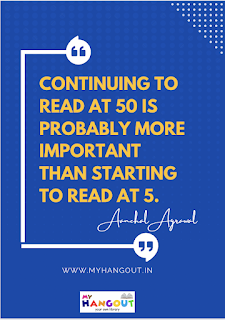We all want our kids to read more and write better, but every now and then, unwittingly, these 2 habits are put on the backburner. Reasons that look justified: the child has exams, the child is enrolled in a lot of classes, the child has a lot of school work, and so on.
When we take away a storybook due to school work, we teach the kids that reading is not a fundamental habit to develop and it's something to do when only we have a lot of free time that would otherwise go into T.V. or video games. When storybooks are used as better substitutes for screen time, reading doesn't develop as a life skill, as a habit.
Research shows that children must read something for fun - this is very different from the study- for at least 15 minutes a day and they must write something for fun - which is again very different from the studies- for at least 15 minutes a day. Fun reading and fun writing for oneself have a very positive effect on the brain. This as a habit keeps us tuned to the entire process. Of course, you don't win a marathon in the middle of a school year if you walk/run only during the vacations.
What to read quickly:
Just a passage or a paragraph, if not a complete story
A short comic story
A short paragraph from an encyclopedia
An article from a magazine or newspaper
What to write quickly:
A paragraph on grandfather's narration of one of his past experiences
A new ending to an old classic story
A paragraph with a very random and enticing sentence
A fresh perspective (If I were a dining table)
Taking a break from fun reading and fun writing is detrimental to the organic process of creativity, imagination, language memory, flow, formatting, summary skills, and most importantly - confidence.
Kids cannot have interest in and sustained focus while reading when reading becomes a holiday reading. Kids who don't write for fun every day find it difficult to suddenly show their best creativity when an exam or a competition demands it.
Fun reading and fun writing are as primary as bathing and brushing teeth every day. Some time management is all we need. Again, it's important to raise readers and writers who can read and write well into their adulthood.
